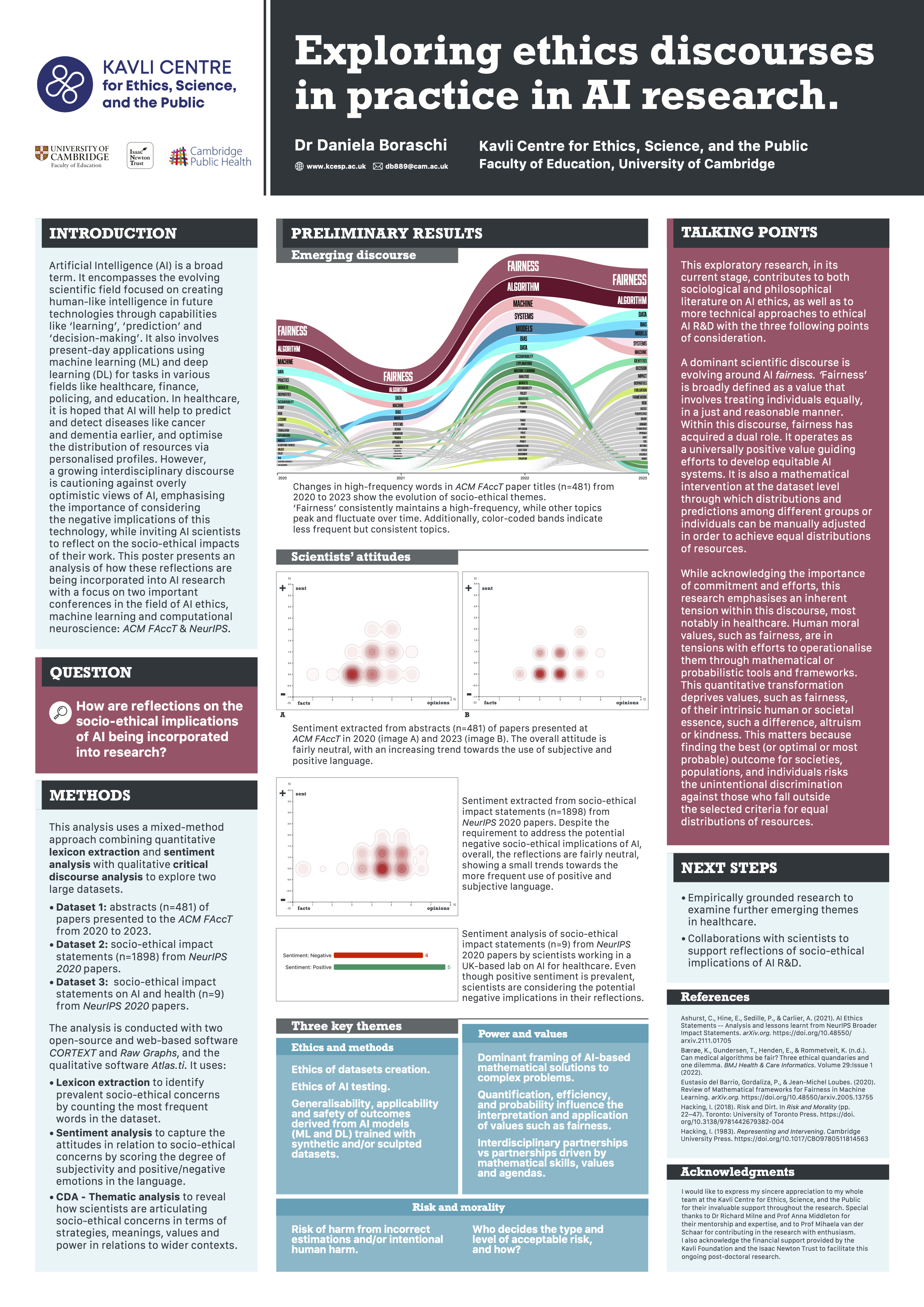Daniela Boraschi, Post Doctoral Research Associate in the Kavli Centre, funded by the Isaac Newton Trust, presented a poster on her current work within the Creativity for Scientific Change project at the Cambridge Public Health showcase event on “Breaking the Cycle of Intergenerational Adversity – The Role of Public Health”. The poster is below or can be seen here on the CPH website, where you can also find out more about the event.
Artificial Intelligence (AI) is a broad term. It encompasses the evolving scientific field focused on creating human-like intelligence in future technologies through capabilities like ‘learning’, ‘prediction’ and ‘decision-making’. It also involves present-day applications using machine learning (ML) and deep learning (DL) for tasks in various fields like healthcare, finance, policing, and education. In healthcare, it is hoped that AI will help to predict and detect diseases like cancer and dementia earlier, and optimise the distribution of resources via personalised profiles. However, a growing interdisciplinary discourse is cautioning against overly optimistic views of AI, emphasising the importance of considering the negative implications of this technology, while inviting AI scientists to reflect on the socio-ethical impacts of their work. This poster presents an analysis of how these reflections are being incorporated into AI research with a focus on two important conferences in the field of AI ethics, machine learning and computational neuroscience: ACM FAccT & NeurIPS.



